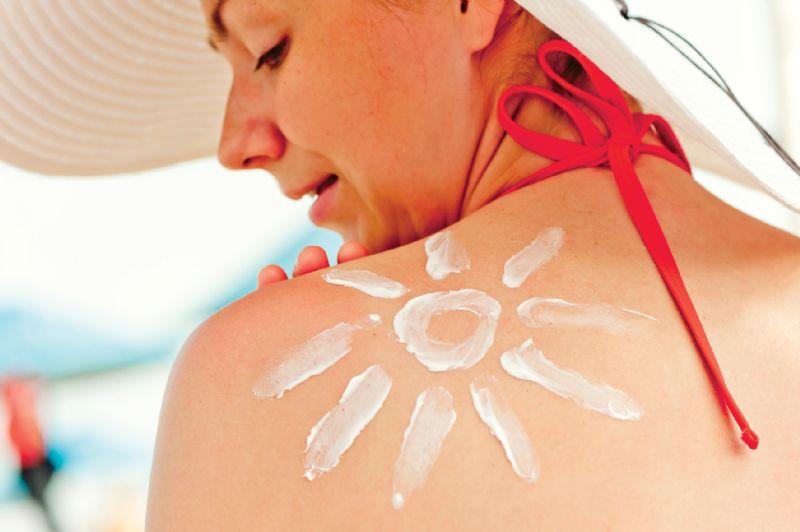- Home
- News, Articles & Reviews
- All Health & Beauty
- Looking Good, Feeling Great
- Medical Health
- Mirror Mirror on the Wall
- Style & Fashion
- General
- Vintage & Sustainable Fashion
We are hiring! Please click here to join our growing magazine delivery team in Gloucestershire!
Areas
Health & Beauty
Archive

Sizzling summer sun
All Areas > Health & Beauty > Mirror Mirror on the Wall
Author: Val Starr, Posted: Monday, 26th June 2023, 09:00
Summer has arrived in all its glory and if we are to believe the meteorologists, it could be a ‘scorcher’! After a long, gloomy winter it is finally time to relish those sunny days, but our skin does not always appreciate the ever-increasing strong summer rays.
Skin cancers are on the rise; if you have ever tried to see a dermatologist on the NHS you know it can be a very lengthy process. It is imperative we protect our skin from a young age, not just during the summer months but all year round. I do not wish to put a damper on enjoying the sunshine, but caution will help all of us in the long term to avoid sun damage.
The first commercial sunscreen was developed in 1932 and we have certainly come a long way from the days of sticky, heavy creams which were hard to apply, often with not a very pleasant smell.
How do sunscreens work?
Sunscreens contain chemical (organic) or physical (inorganic) compounds to block ultraviolet radiation, which is light with shorter wavelengths than visible light. Along with skin cancer, these rays can cause skin ageing, spots and wrinkles. Dermatologists agree finding the best sunscreen for you is the key to healthy skin, helping to prevent premature ageing on the face.
If you could only choose one daily product it should be a broad spectrum sunscreen, preferably with a 5 star rating. Remember, all sunscreens should have an expiration date, after which the product will start to degrade. Out-of-date products won’t be as effective at protecting your skin, so make sure you keep an eye on the dates.
Application
You should apply sunscreen fifteen to thirty minutes before you go outside. If you swim or sweat, remember to reapply. Even lying on a towel can rub sunscreen off. Some think the UK sun does not pose a great threat, but this is a big mistake. Believe it or not, UVA rays can penetrate both clouds and windows, even in the UK. Older drivers might see a difference in the skin pigmentation on the hand most exposed when driving.
Wearing a high grade sunscreen can even help to improve existing wrinkles, pigmentation and texture of the skin. We tend to under-apply, meaning we don’t get enough of the SPF labelled on the bottle. Common advice is to squeeze two strips of sunscreen along both your index and middle fingers and apply to each area of your body. Never forget bald spots, tips of ears and the back of your neck.
Clothing
Clothing should be your first easy defence from damage; cover as much as possible, especially shoulders which burn easily. Children have very vulnerable skin, so have them wear hats and t-shirts, and get them used to skin protection from an early age.
Sunglasses
UV radiation can also damage our eyes, so look for sunglasses with a UKCA or CE (for the EU) marking, which offer a safe degree of protection.
Fake it
To be supersafe, why not fake your tan? You’ll still need to apply sunscreen if you’re out and about, but you can sport a golden glow without needing to bask in the sunshine for hours. Enjoy the sun safely!Copyright © 2024 The Local Answer Limited.
Unauthorized use and/or duplication of this material without express and written permission from this site's author and/or owner is strictly prohibited. Excerpts and links may be used, provided that full and clear credit is given to The Local Answer Limited and thelocalanswer.co.uk with appropriate and specific direction to the original content.More articles you may be interested in...


© 2024 The Local Answer Limited - Registered in England and Wales - Company No. 06929408
Unit H, Churchill Industrial Estate, Churchill Road, Leckhampton, Cheltenham, GL53 7EG - VAT Registration No. 975613000You are leaving the TLA website...
You are now leaving the TLA website and are going to a website that is not operated by us. The Local Answer are not responsible for the content or availability of linked sites, and cannot accept liability if the linked site has been compromised and contains unsuitable images or other content. If you wish to proceed, please click the "Continue" button below:




